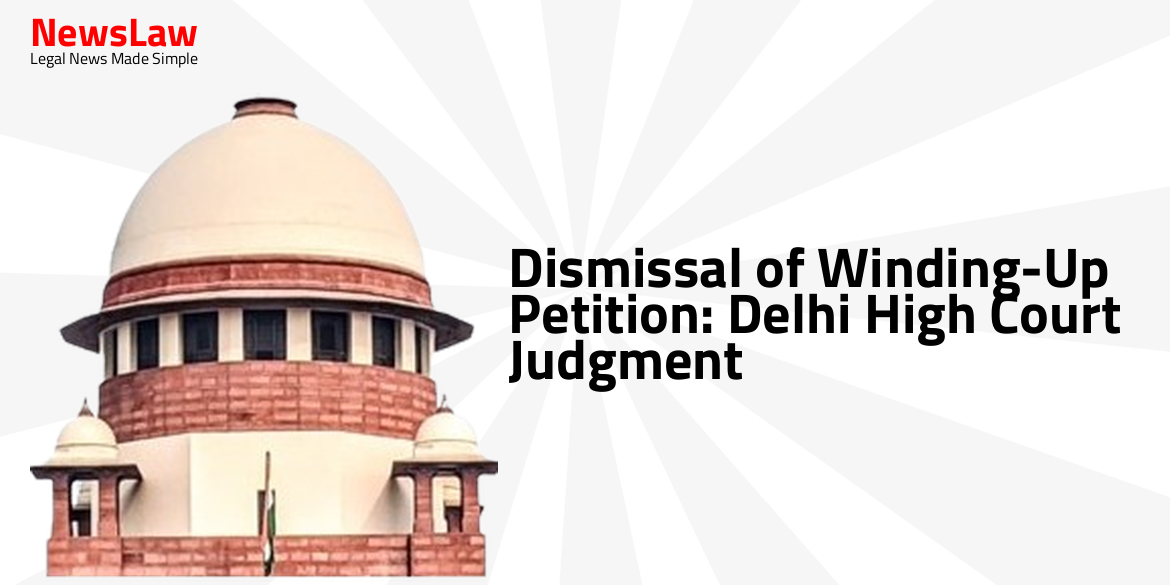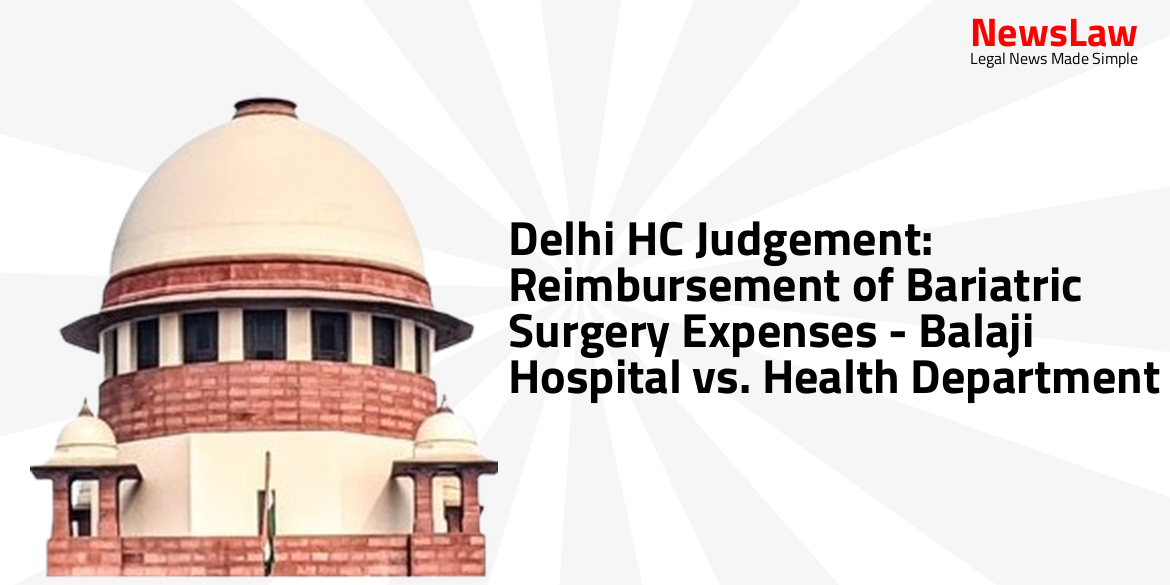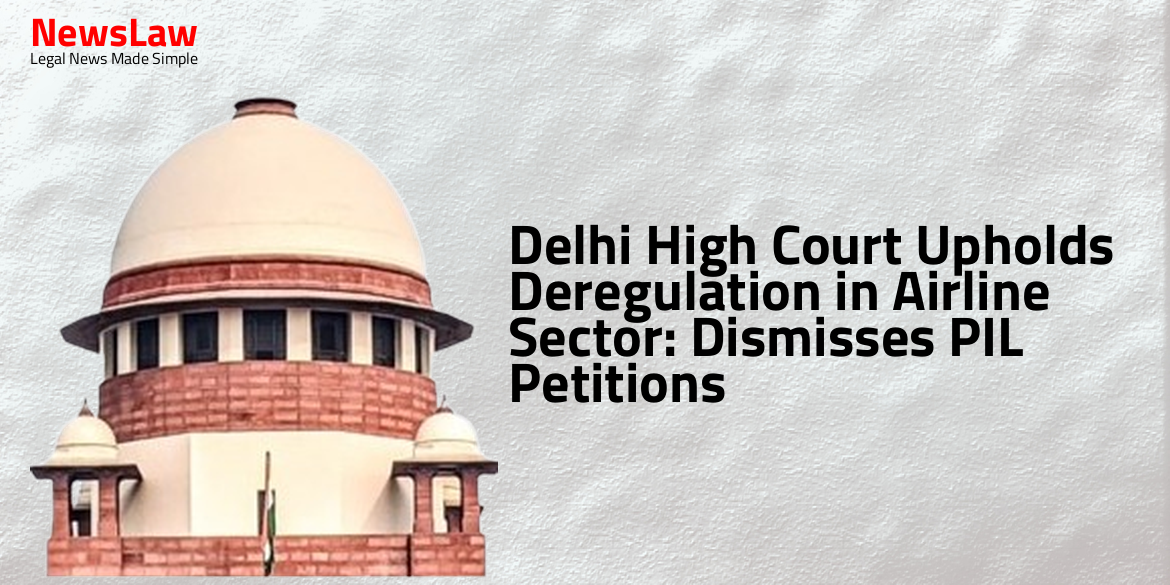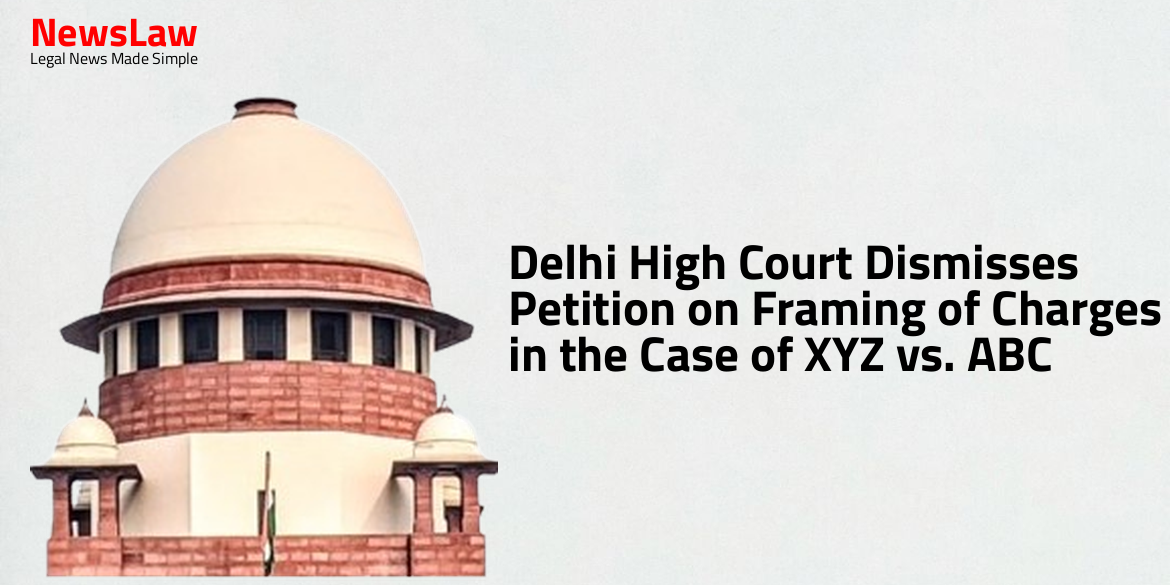In a recent judgment by the Delhi High Court, the dismissal of the winding-up petition in the case between the parties involved sheds light on the significance of addressing genuine disputes through proper legal channels. The court’s decision emphasizes the need for parties to seek resolution through established legal processes. Let’s delve into the details of the judgment and its implications.
Facts
- The respondent company argues that there is no outstanding liability towards the petitioner
- Respondent company denies the petitioner qualifying as a creditor as per Section 439 of the Act
- The respondent company has not admitted any debt due to the petitioner
- Winding up process cannot be used for recovery of a disputed debt
- Petitioner advised to seek remedy through civil court for recovery of alleged amount
- Respondent claims services rendered by petitioner were deficient and not to satisfaction as per agreement
- Issues raised by respondent regarding service deficiencies are genuine and require evidence for resolution
- Matters of disputed questions of law and facts should be adjudicated by the civil court
Arguments
- Learned counsel for the petitioner argued for the benefit of Section 14 of the Limitation Act, 1963.
- The counsel urged for according the petitioner the benefit of Section 14 in the current situation.
Analysis
- In cases of substantial dispute as to liability, a creditor cannot prefer an application for winding-up for discharge of that liability.
- A dispute is considered substantial and genuine if it is bona fide and not spurious, speculative, illusory, or misconceived.
- The Company Court has a duty to examine whether the company has a genuine dispute to the claimed debt in such situations.
- The Company Court does not conduct a full trial during this stage.
- Disputes raised must be genuine and not a mere tactic to evade payment.
- The grounds of dispute should not be a deceptive strategy to unjustly withhold payment.
- The court has the discretion to determine the legitimacy of the dispute.
- Threatening a winding-up petition solely to coerce payment is not acceptable.
- If a debt is genuinely disputed with valid reasons, the court should dismiss the petition and require the creditor to prove their claim through proper legal channels to prevent misuse of winding-up procedures.
- The contentions raised by the petitioner should have been presented before the Civil Court.
- The issues raised now are not meritorious in the present petition.
- Observations made herein will not prejudice the rights of the parties.
Decision
- The present company petition is dismissed and pending applications are disposed of.
- The petitioner is advised to approach the appropriate civil court for adjudication of its claim for any period spent during the pending winding up petition.
- The petitioner is granted liberty to institute appropriate proceedings before the Commercial Court.
- The petitioner is allowed to seek condonation of delay under Section 14 of the Limitation Act for time spent in the winding up proceedings.
- No opinion on the merits of the case is expressed in this disposition.
Case Title: AMIT ARORA Vs. MMR INFRASTRUCTURE DEVELOPERS PVT LTD (2024:DHC:3959)
Case Number: CO.PET.-920/2015



